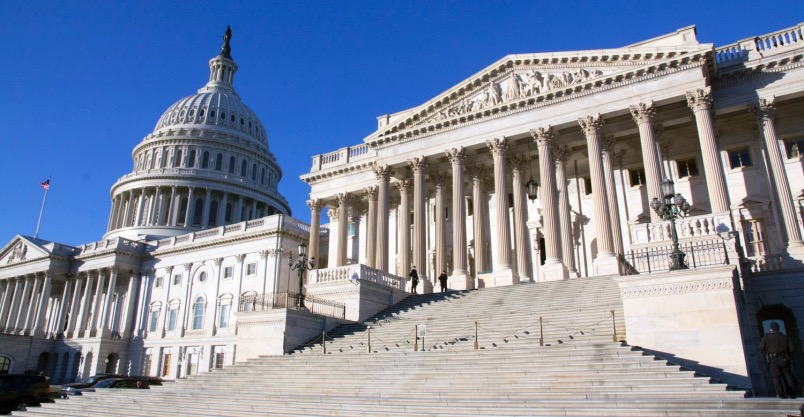 WASHINGTON: Sens. James Inhofe and Jack Reed have drafted new legislation aimed at protecting GPS receivers from interference by Ligado’s 5G wireless network approved in April by the FCC — as opposition to the controversial decision expands to include farmers and other key congressional constituencies.
WASHINGTON: Sens. James Inhofe and Jack Reed have drafted new legislation aimed at protecting GPS receivers from interference by Ligado’s 5G wireless network approved in April by the FCC — as opposition to the controversial decision expands to include farmers and other key congressional constituencies.
The legislation — “Recognizing and Ensuring Taxpayer Access to Infrastructure Necessary for GPS and Satellite Communications Act” — will be a free-standing bill, a Hill aide confirmed. We couldn’t get any advance details.
Both Inhofe and Reed, the top two members of the Senate Armed Services Committee (SASC), have vociferously objected to the FCC’s decision to let Ligado repurpose its L-band spectrum license from satellite communications to a terrestrial one — echoing DoD’s long-standing concerns about crippling interference with GPS receivers. The SASC’s version of the 2021 National Defense Authorization Act (NDAA) includes language that prohibits DoD from complying with the Ligado order until it can provide a cost estimate. It also instructs Secretary of Defense Mark Esper to contract with the National Academies of Science and Engineering to undertake an independent review of the testing done by DoD and Ligado. The Pentagon says Ligado’s approach will result in unacceptable and dangerous interference while, not surprisingly, Ligado and the FCC refute DoD’s claims.
The Inhofe-Reed legislation already is being backed by a brand new anti-Ligado coalition, called Keep GPS Working. It includes five large trade industry organizations representing thousands of GPS users, such as farmers, ranchers, transportation workers, construction companies and commercial airline pilots.
“America’s farmers and ranchers rely on precision agriculture technology and GPS so their farms and ranches can be more efficient, economical and environmentally responsible. Expanding broadband access is a top priority for Farm Bureau but not at the expense of losing the accuracy of GPS,” said Zippy Duvall, president of the founding American Farm Bureau Federation in the coalition’s maiden press release today.
Dale Leibach, the coalition’s spokesperson, told Breaking D today that “about one-third — Republicans and Democrats — of the Senate oppose” the Ligado plan. The coalition, of course, is looking to broaden that opposition. The focus on the agriculture sector in particular may succeed in doing so, as Big Ag has enormous clout on Capitol Hill.
One of the sticking points for Inhofe and Reed has been the fact that the FCC does not fall within the SASC’s jurisdiction; it is overseen by the Senate’s commerce, science and transportation committee. Republican Sen. Roger Wicker, who chairs it, has expressed some support for the FCC ruling. But on June 16 at FCC Commissioner Michael O’Rielly’s confirmation hearing, he told fellow committee members that he wants to hear both sides of the issue. The Commerce Committee holds another hearing tomorrow on FCC oversight, where the Ligado case is again bound to be in the spotlight.
Major trends and takeaways from the Defense Department’s Unfunded Priority Lists
Mark Cancian and Chris Park of CSIS break down what is in this year’s unfunded priority lists and what they say about the state of the US military.


























